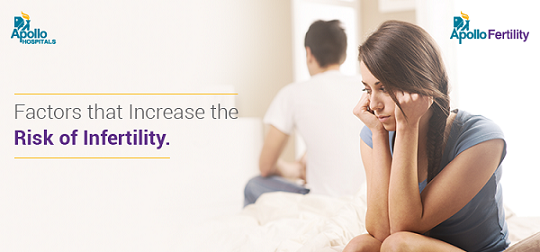Lifestyle and food habits majorly dictate the future of one’s fertility.
About ten percent of women suffer from infertility, however, it is not confined only to women, men are at risk of infertility, too.
Nothing can be done against inherent infertility, it’s pretty irreversible. People who have good fertility unwittingly let it deteriorate because of the things they don’t know they’re doing wrong.
- Age
Age is one of the major factors that add up to infertility in both men and women. We all know how a female’s menstrual cycle works. We are well aware that since the day a girl starts her period, she starts losing her eggs. A girl in her teens and throughout her twenties can risk losing her eggs. But when she enters her 30’s, her egg production declines, and the matter only keeps mitigating from that point on.
Once a woman reaches her late 30’s the chance of getting pregnant reduces down to 45%. Carrying out a pregnancy after a certain age can lead to miscarriage or worse, result in abnormal health conditions.
Age affects a man’s fertility just as much as it does a woman’s. The motility of the sperm in men is reduced due to age. And, even if a man manages to impregnate a woman at an age where fertility is at its lowest, chances are, it may cause miscarriage. There is a 70% chance of the child being born with genetic mutations or damaged DNAs.
- Hormones:
Hormones are responsible for the way a body reacts. If your hormones are under control, the process of conceiving becomes a lot easier. Progesterone is the hormone responsible for ovulation. A decrease in the levels of this hormone can prove to be problematic for ovulation. Which is why doctors prescribe pills to women who are trying or are already pregnant to maintain a hormonal balance.
Testosterone in men should not be higher than required, the higher the level of these hormones, the less are the chances of sperm fertilizing the embryo.
- Smoking
Men and women who smoke are at great risk of infertility. Smoking ruin lungs, but not all men and women are aware of the effect it has on fertility. In women, smoking causes fallopian tube adhesions— a hindrance during ovulation. The sperm won’t be able to fertilize an egg if there is no egg to fertilize. Smoking doesn’t just affect the fallopian tube, but also changes the uterus lining, and can be detrimental to egg development in the ovaries.
In men, it affects the motility of the sperm. Smoking causes an imbalance between usually healthy protein present in semen that contains protamine 1 and protamine 2. Smoking produces too less of protamine 2 than required to fertilize an egg. This imbalance leads to miscarriages as the sperm of too weak to fertilize the egg.
- Irregular periods:
Women with irregular periods can also have infertility problems. The irregular menstrual cycle can be caused due to obesity or being underweight. Not having appropriate weight highly impacts the fertility.
Hypothyroidism also causes an irregular period which interferes with ovulation.
- Chronic Diseases:
Consuming poor diet, alcohol, or having no physical activity causes chronicle disease such as type 2 diabetes, obesity, and cancers. These chronic diseases can interfere with ovulation in women, and reduce the sperm count present in the semen.
Infertility can be a result of the weaker immune system as well.
Low fertility is a hindrance, yes, but most of the things listed above are curable and can be helped if proper planning and medication are taken into consideration. If infertility is holding you back from becoming a parent, there are doctors and fertility clinics out there to help your dream of becoming a parent into reality.
